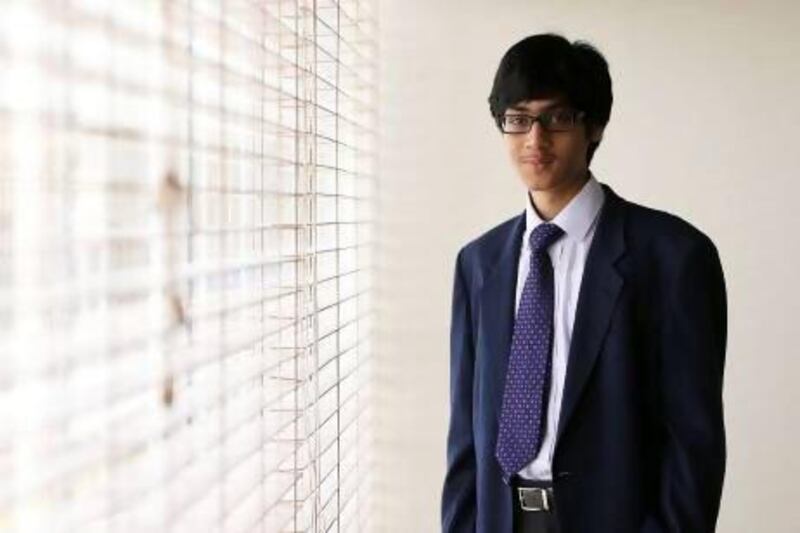DUBAI // While Abhinav Das’s classmates were letting their imaginations run wild for a school project, he knuckled down to solve a conundrum: why doesn’t the UAE make more use of solar power?
Abhinav, 15, a pupil at Jumeira Baccalaureate School in Dubai, asked himself that question for years.
So while his friends were choreographing dances, building engines and testing sea water, he was determined to find out.
The project took him on a journey of discovery, meeting solar entrepreneurs and engineers, utility authorities and policymakers along the way.
About 90 pages of research later, Abhinav’s project won praise from leading figures in the industry, who invited him to take part in a summer internship with the Emirates Solar Industry Association.
“This is probably the biggest and best piece of work I have ever done and it is nice to feel I can do it,” said the pupil.
He admitted he knew very little about the topic before starting his research in August last year.
Abhinav’s report, Solar Energy in the UAE, is an impressive effort considering its author’s age, said association president Vahid Fotuhi.
“We are very impressed with the quality and the professionalism of his work,” Mr Fotuhi said.
Abhinav said there were many times he had almost given up his quest for answers. “At the beginning it seemed I was really getting nowhere,” he said.
“I chose the topic in August and I had to finish in December. Until September, I hadn’t managed to get through to anyone.”
His mother Sujata, a former journalist, and father Amitabh, a banker, taught him it was important “not to be too polite, but not to be a pest at the same time”.
Abhinav also had to persuade busy industry professionals that he was more than “just a kid who needed help with some homework”.
“When I was first making my phone calls to contacts I was practising what I was going to say for maybe two or three hours before picking up the phone.”
By late September, Abhinav was starting to get positive replies from people in the industry.
With more information came more questions, and he found himself going beyond the initial goals he had set for the project.
Besides looking into what use the UAE is making of solar power and the laws governing it, Abhinav investigated different technologies and performed a cost analysis of how they could be implemented.
“I had no idea back then how big this would become,” he said. “Every time I discovered something I had more and more questions.
“When I first started out I had a very naive perspective. I though if we get the sunlight … solar energy will work very easily.”
Abhinav discovered there were many other factors to consider such as the cost of solar plants, the low prices of conventional power and the role government support has played in encouraging solar energy in other countries.
“It really is all about incentive. People need a reason to do this,” he said.
With the right government support, the UAE could “really be counted in the ranks of the top solar markets within a decade or so”.
Abhinav was given full marks for his project. The solar industry also took notice and he was asked to present his work at the World Future Energy Summit in Abu Dhabi in January.
The Emirates Solar Industry Association is helping him to rework his report into an educational kit on solar power for school pupils.
“We will make it available freely on our website so that students can download it and learn more about solar power,” Mr Fotuhi said.
vtodorova@thenational.ae






